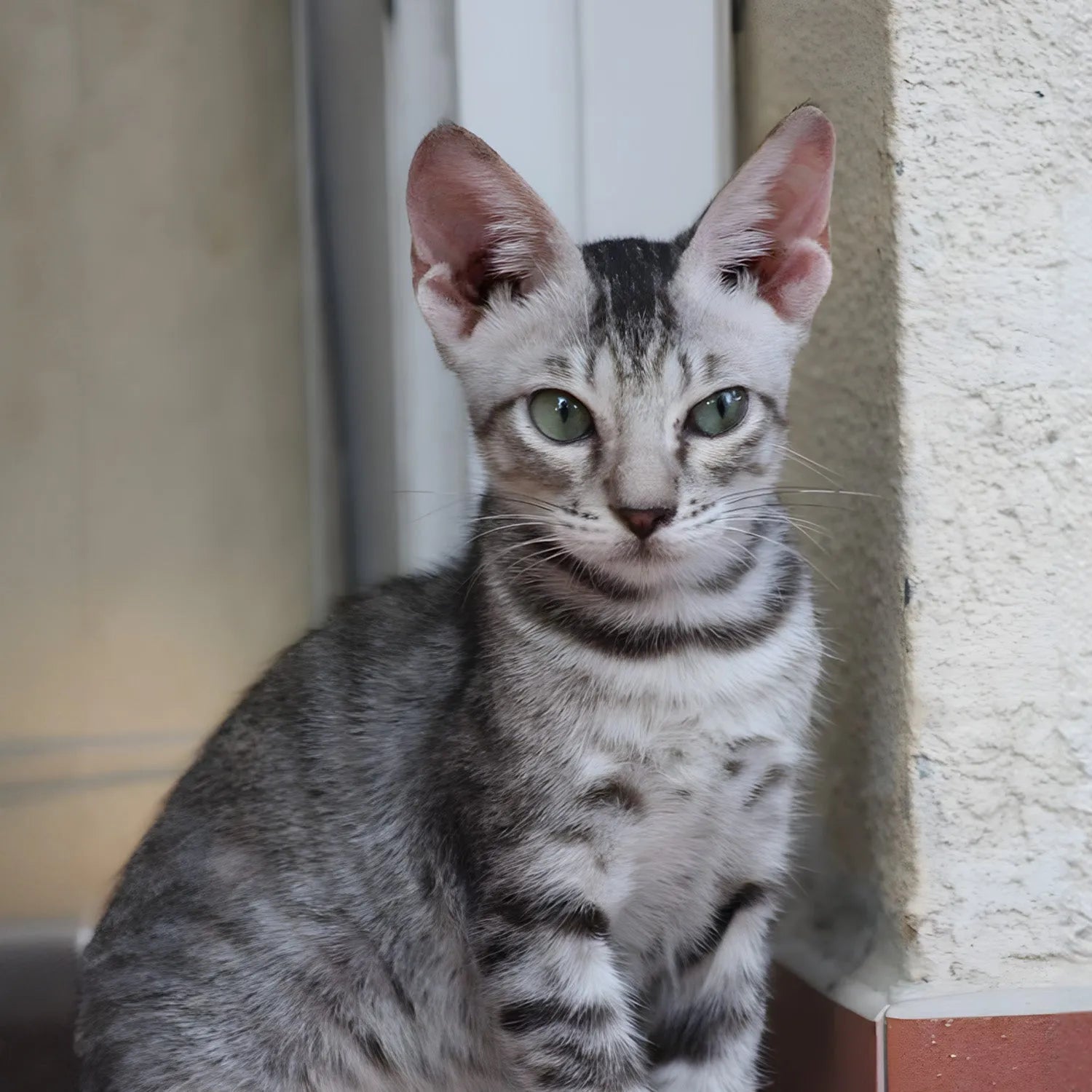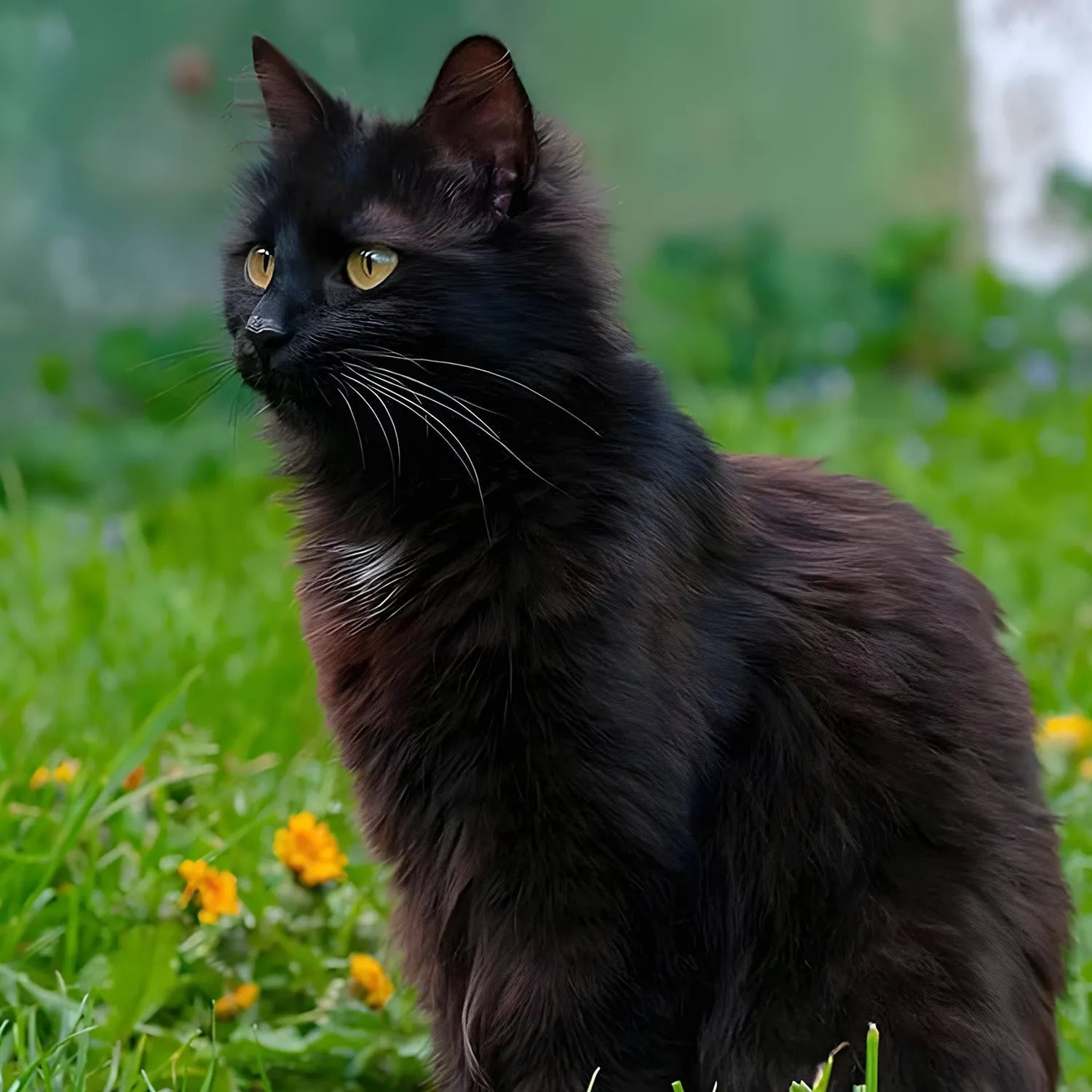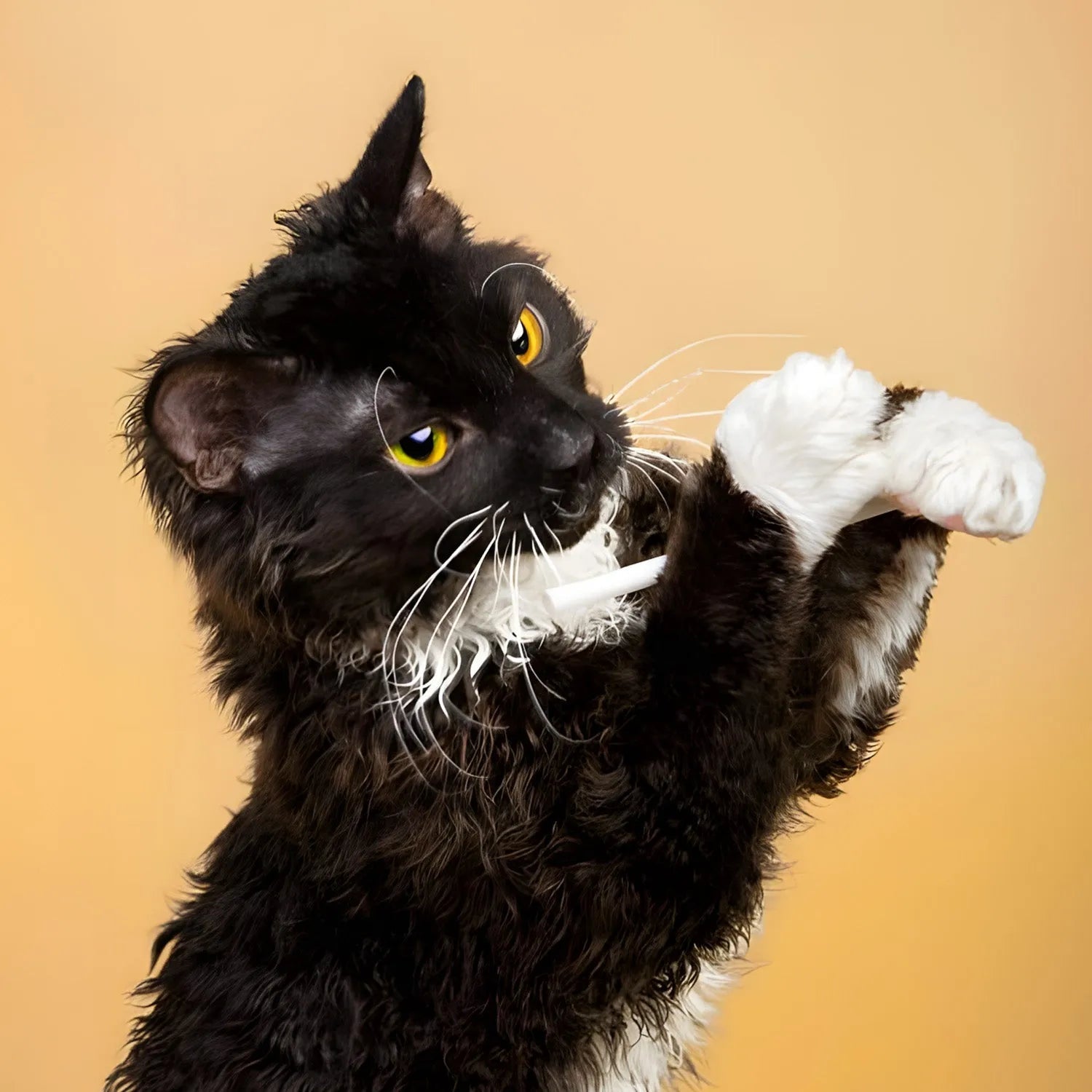Cornish Rex: The Playful and Curly-Coated Acrobat
Introduction
The Cornish Rex is a distinctive and elegant breed, easily recognized by its unique curly coat and slender, athletic build. Despite their sophisticated look, these cats are known for their playful, kitten-like personalities and acrobatic abilities. If you’re looking for a cat that’s always full of energy and loves to entertain, the Cornish Rex might just be the perfect fit for your home. In this blog, we’ll explore the Cornish Rex’s lifestyle, behavior, grooming needs, trainability, and how it interacts with humans and other pets.
Ratings (1-5)
-
Environmental Adaptability: 4
-
Food Consumption: 3
-
Need for Companionship: 5
-
Trainability: 5
-
Tolerance of Children: 5
-
Ease of Domestication: 4
History and Origins
The Cornish Rex breed originated in Cornwall, England, in 1950, when a curly-coated kitten named Kallibunker was born to a farm cat. The kitten’s unusual coat led breeders to begin developing a new breed with the same genetic mutation that caused its wavy fur. Kallibunker’s descendants became the foundation of the Cornish Rex breed, which was officially recognized in the 1960s. The breed’s name comes from the region of its origin (Cornwall) and the "Rex" gene responsible for its unique coat. The Cornish Rex has since gained popularity around the world for its distinctive appearance and lively personality.
Physical Characteristics and Colors
The Cornish Rex is a medium-sized cat with a slender, fine-boned frame and long, lean muscles. One of the breed’s most distinctive features is its coat, which is short, curly, and velvety to the touch. Unlike other cats, the Cornish Rex only has the down layer of fur, which gives it a unique texture and softness. This curly coat comes in a variety of colors and patterns, including solid, tabby, tortoiseshell, and bicolor. The Cornish Rex also has large, high-set ears and an oval-shaped head with expressive almond-shaped eyes, adding to its overall exotic appearance.
Lifestyle and Behavior
Cornish Rex cats are known for their playful and energetic personalities. They are incredibly active cats that love to jump, climb, and explore their surroundings. Cornish Rexes are often described as “acrobats” because of their ability to leap to high places and run at high speeds. Despite their high energy levels, they are also affectionate cats that form strong bonds with their human companions. Cornish Rexes love to be the center of attention and will often follow their owners around the house, eager to be involved in everything. Their playful and social nature makes them well-suited for homes where they can receive plenty of interaction and stimulation.
Trainability and Intelligence
Cornish Rex cats are highly intelligent and can be trained to follow commands, perform tricks, and even walk on a leash. They are quick learners and respond well to positive reinforcement techniques, such as treats and praise. Cornish Rexes enjoy mental challenges, making them adept at learning new things, whether it's fetching, sitting on command, or navigating an agility course. Their intelligence and curiosity also mean they are natural explorers, and they benefit from having plenty of toys and puzzle games to keep their minds engaged. Training sessions with Cornish Rexes are often a rewarding experience for both the cat and the owner.
Social Behavior and Human Interaction
Cornish Rex cats are incredibly social and form strong bonds with their human families. They are affectionate and enjoy being involved in every aspect of their owner’s life. Cornish Rexes are particularly known for their love of attention, and they will often follow their owners from room to room, eager to be part of the action. They are also quite vocal and will communicate with their owners through a variety of chirps, meows, and purrs. Cornish Rexes thrive in environments where they can receive plenty of interaction and playtime, and they are well-suited to active households where they can be the center of attention.
Compatibility with Children and Other Pets
Cornish Rex cats are excellent companions for children due to their playful and energetic nature. They enjoy interactive play and are generally tolerant of children’s antics, provided they are treated with respect. Additionally, Cornish Rexes tend to get along well with other pets, including dogs, as long as they are properly introduced. Their sociable and adaptable nature allows them to integrate well into multi-pet households, and they often enjoy the company of other animals as much as they do humans. Cornish Rexes are known for their ability to form strong bonds not only with their human families but also with other pets in the household.
Grooming and Care
The grooming needs of a Cornish Rex are minimal due to their short, curly coat. Weekly brushing is usually sufficient to remove loose hairs and keep their coat looking shiny and healthy. However, because their coat is so fine, it doesn’t provide as much insulation as other breeds, so Cornish Rexes may be more sensitive to cold temperatures. Owners should make sure their homes are warm and provide cozy spots for their cat to snuggle. Regular dental care, ear cleaning, and nail trimming are also important to maintain their overall health. Despite their low-maintenance grooming needs, Cornish Rexes enjoy the bonding time that grooming sessions provide, and it can be a great way to strengthen the bond between cat and owner.
Health and Lifespan
Cornish Rex cats are generally healthy, but like all breeds, they can be prone to certain genetic conditions. These may include hypertrophic cardiomyopathy (a form of heart disease) and patellar luxation (a condition affecting the kneecap). Regular veterinary check-ups and a balanced diet are essential to maintain their health. With proper care, Cornish Rex cats can live up to 12-15 years or more. Regular monitoring and preventive care are important to ensure a long and healthy life for your Cornish Rex cat.
Environmental Adaptability
Cornish Rex cats are adaptable and can thrive in various living environments, although they are particularly well-suited to indoor living due to their fine coats, which make them more susceptible to temperature changes. They are known for their resilience and can adjust well to different climates and household settings. Whether in an apartment or a house, Cornish Rex cats will find ways to entertain themselves and stay active. However, they do best in environments where they can receive plenty of attention and interaction from their owners. Their adaptable nature makes them well-suited to a wide range of living conditions, but they require a stimulating environment with plenty of opportunities for physical activity and mental engagement.
Feeding Requirements
A balanced diet is crucial for maintaining the Cornish Rex cat's health and energy levels. High-quality cat food that is rich in protein is recommended. Fresh water should always be available. Because Cornish Rexes are highly active, they may require more calories than the average domestic cat to support their energy levels. Consult your veterinarian for specific dietary recommendations based on your cat's age, weight, and health needs. Monitoring their diet to prevent obesity is essential, as Cornish Rexes can be prone to overeating if not properly managed.
Conclusion
The Cornish Rex is a playful, acrobatic breed that brings excitement and companionship to any household. Their intelligence, affectionate nature, and striking appearance make them wonderful pets for families and individuals alike. If you're looking for a cat that will form a deep bond with you and keep you entertained with its lively antics, the Cornish Rex might be the perfect fit for you.
For more information about other cat breeds and pet care tips, stay tuned to our blog!
References:
-
Harper, J. (2021). "The Playful and Curly-Coated Cornish Rex Cat." *Journal of Feline Studies*, 35(3), 201-215.
-
Thompson, D. (2020). "Caring for Your Cornish Rex: A Comprehensive Guide." *Cat Lover’s Magazine*, July issue, pp. 30-40.
-
Richards, A. (2019). "Health and Wellness in Cornish Rex Cats." *Veterinary Journal*, 79(2), 123-137.


